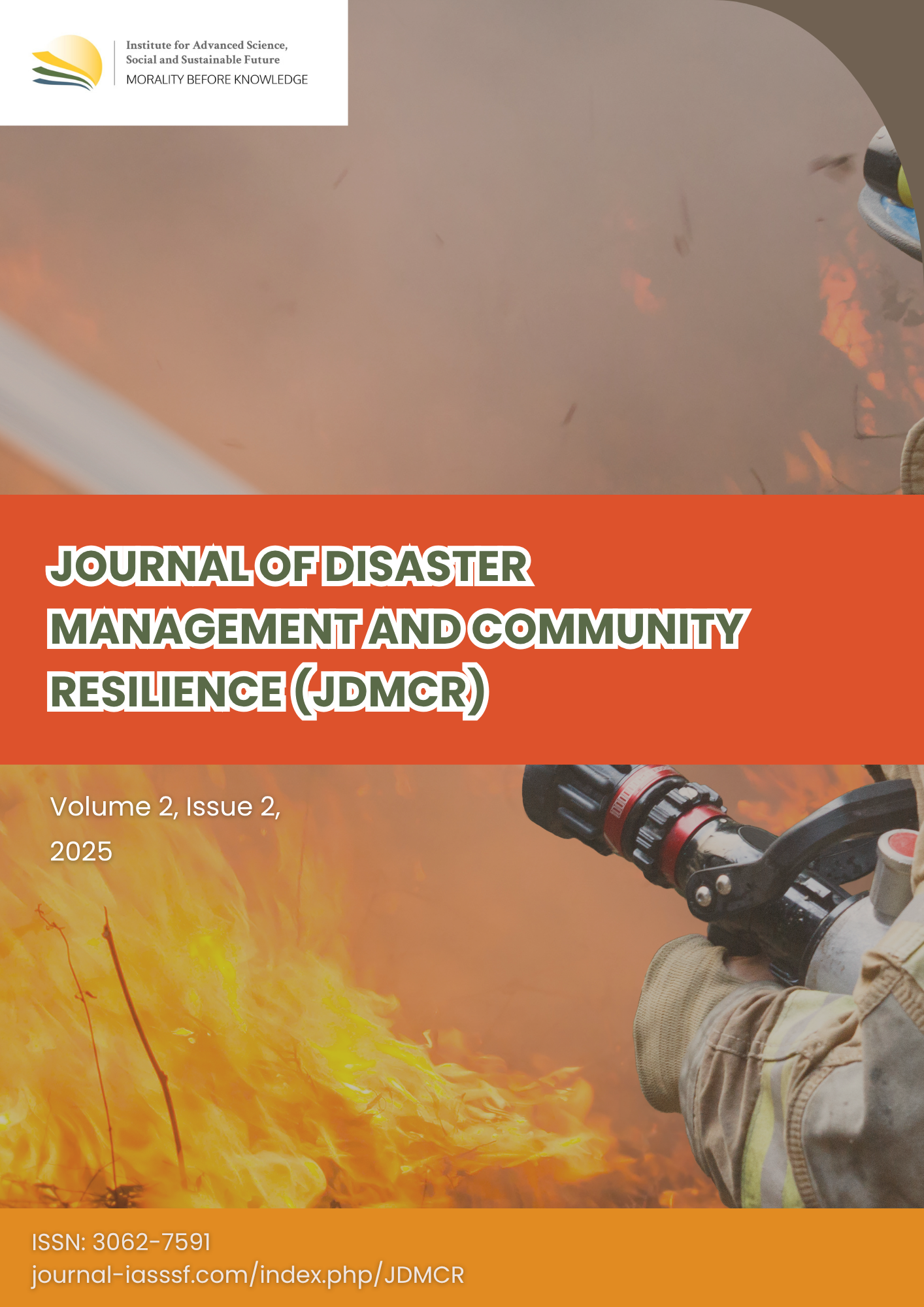Gedebage community response to the government's flood management
DOI:
https://doi.org/10.61511/jdmcr.v2i2.1916Keywords:
community response, flood, gedebage, government policy, public participationAbstract
Background: This study was conducted to explore the views of Gedebage residents on the steps taken by the government to overcome flooding and to assess the effectiveness of the policy from the community's perspective. The focus of the problem lies in the dissatisfaction of residents due to the handling that is considered not comprehensive, such as the problem of the water channel system that has not been resolved and the lack of public involvement in policy planning. Methods: The method used is a qualitative approach with a phenomenological type, through data collection in the form of interviews, observations, and documentation to describe the direct experiences of residents. Findings: The findings show that the community feels that government actions are not responsive enough and have not resolved the core problems, while community participation is still self-help and has not been included in formal programs. In addition, the distribution of aid is considered unfair and information from the government is not conveyed well. Conclusion: Limited participation space also weakens public trust in the services provided. Based on this, a more open, collaborative, and solution-oriented strategy is needed so that flood management policies can be better accepted, targeted, and encourage active community involvement. Novelty/Originality of this article: This study explores flood management from the perspective of affected residents, offering a view that is often absent in policy evaluations. It emphasizes the need to place community experiences at the center of designing more responsive and inclusive flood management strategies.
Published
Issue
Section
Citation Check
License
Copyright (c) 2025 Elvan Nia Riana, Muhamad Iqbal, Sifa Nurul, Muhammad Andi Septiadi

This work is licensed under a Creative Commons Attribution 4.0 International License.













